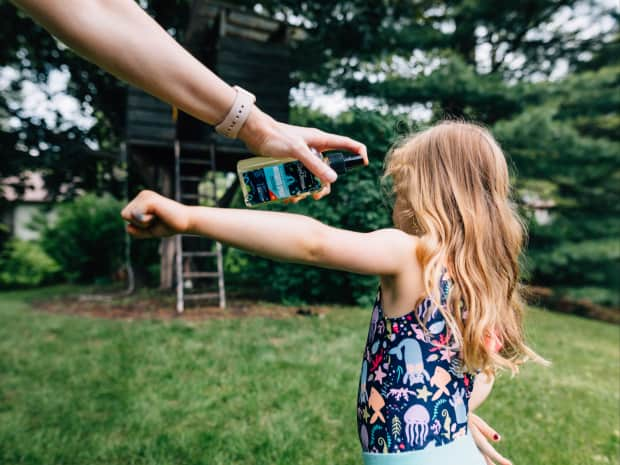
9 More Natural Bug Repellents That Actually Work
We've pulled the top 9 bug repellents as determined by Grove members. Have a look!
Read More

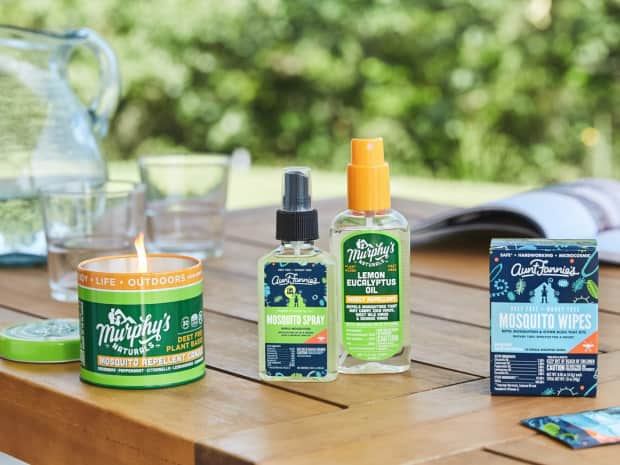
Last Updated: August 9, 2022
It’s that time of year to get out there and enjoy all nature has to offer! Leave your adventures without a trace with eco-friendly products that avoid plastic and waste.
It may seem like it’s impossible to take your family out into nature and not leave behind a big ol’ mess. But simple swaps to your camping gear list could ensure an eco-friendly experience without sacrificing efficacy or convenience.
Start with Grove’s clean camping kit to hit the basics, and read on for more sustainable options you’ll love bringing for all your outdoor fun and the benefit of the environment.
76 million pounds of plastic packaging are created by U.S. companies every single day.
Only 9% of plastic gets recycled, no matter how much you put in your recycling bin.
24 billion pounds of plastic enter the oceans every year, killing over 1 million marine animals.
We encourage getting down and dirty to fully experience the beauty of Earth, but that doesn’t mean staying that way!
Camping hygiene products (and travel bottles) are a simple swap to harmful and wasteful products you may be packing in your camping gear.

Whether it be a road trip complete with messy eating, a dirty hike, or a good ‘ol cookout during your camping trip, cleaning your hands is a must. Get the job done with hand soap sheets for an eco-friendly solution that dissolves after a rich lather and uses minimal water.
Hand soap sheets are quick and easy to use for you and your kids. Sheets are pre-measured and ready to go when you need them. Rely on them for a biodegradable option that you can feel good about!
Grove member Leanne H. wrote about these wipes “Mind Blowing!! I don't know what kind of sorcery is in these little sheets, but they're my new best friend! They have an awesome lather and small enough to fit in your purse or any bag. We camp a lot & I will definitely order more!”

Another way to keep hands clean is a hand sanitizer. Unfortunately, many hand sanitizers on the market are packaged in a plastic container and full of harsh chemicals. Grove Co.’s hand sanitizers are made with naturally powerful ingredients and smell so good you’ll love this alternative.
Grove’s hydrating travel-size spray kills 99.9% of germs without the harmful chemicals. Pack kids hydrating hand sanitizer with their camping gear for cleanliness you can trust, no matter what they get into. Choose from natural fragrances like Wacky Watermelon and Pear-A-Palooza too!
Erica V. says “Kid Approved. My kids were really excited to try this hand sanitizer after they smelled it. I love it because it doesn't dry out my hands when I use it! If you are looking for an effective hand sanitizer that kiddos (and adults) will actually like using - this is the one!”
And while your baby can’t do it themselves, they can still have clean hands with alcohol-free foaming hand sanitizer.

Between activities, you’ll want to catch a shower. Be sure you’re getting clean with eco and health-friendly options. Soaps on the market are harmful to the environment, from packaging to formula.
Try these eco-friendly and biodegradable bar soaps instead:
And level up the lather with a recycled plastic loofah!
Not a bar soap person? Method body wash offers a genuinely biodegradable and vegan option too. You can choose from multiple scents made with no parabens and no phthalates.
Protect yourself from the harmful rays, and let bugs do their thing (12 feet away). A harsh sunburn and irritating bug bites can do a number on your outdoor fun.
Get ahead of it without the smelly products and negative impact on the environment!
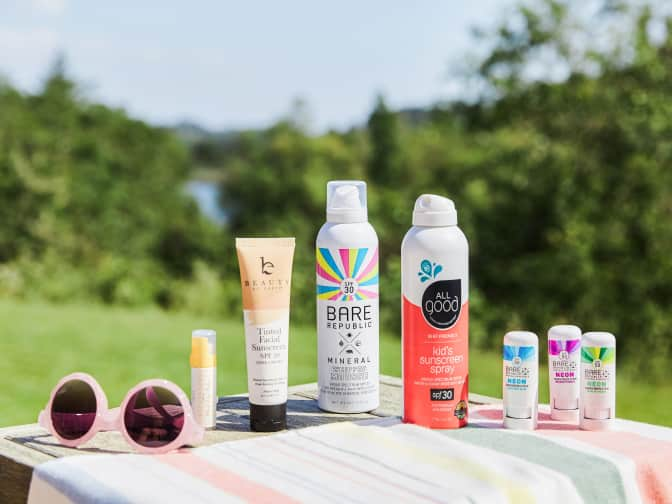
Coola’s Mineral Body Sunscreen Spray helps to fight free radicals without compromising functionality or nourishment. Safe to use on all skin types, you’ll experience a less chalk-like feel and more lightweight applications. Learn what SPF number is correct for you here.
For a face sunscreen that works, give Bare Republic Mineral Face Sunscreen Lotion a try. It provides broad spectrum UVA/UVB coverage with a super light, sheer finish. Made in the USA, this face sunscreen is paraben-free, sulfate-free, and triclosan-free, formulated with antioxidant-rich hydrators including carrot seed, raspberry seed, and grape seed oils.
Don’t forget to include eco-friendly relief options in case you fall victim to sunburn!
Glissa H. loves the After Sun Balm, “I wish I had taken before and after pics. My face and arm were so burned, I applied the balm and about 3 hours later my face was no longer red or burned. This morning, my arm is no longer red. Highly recommend. This stuff is amazing!!”
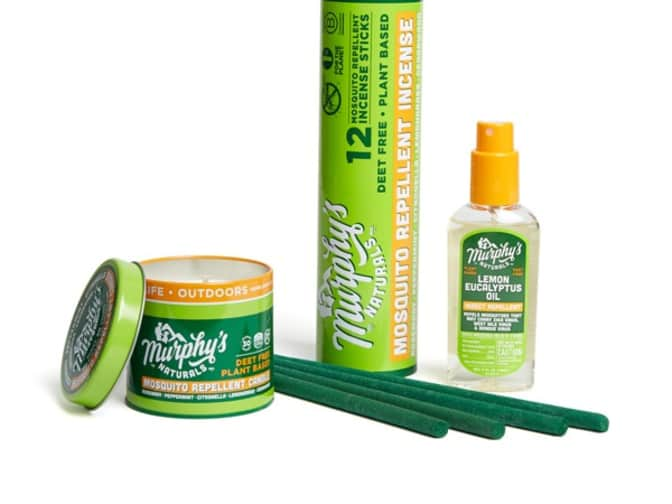
Bugs are necessary for the earth but are probably an unwelcome guest at your outdoor picnic or in your sleeping bag! Keep them away with these eco-friendly bug repellents.
Kinfield Golden Hour DEET-Free Repellent skips the DEET (N, N-Diethyl-meta-toluamind, read: commonly used chemical) and opts for a natural formula. This product not only avoids a negative impact on earth but contributes to the Kinfield mission to recycle correctly. Learn more about Kinfield here.
Or grab the Murphy’s Naturals Mosquito Defense Set for all you need to keep the bugs away! This cool packing gear includes a candle, repellent spray, and a package of incense spray! These products have a non-greasy formula, long-lasting burn, and 12-foot radios! Plus, it’s DEET-free.
Rachel S. says “I love all three products!! We use the sticks around the campfire, the spray all the time outdoors, and I burn the candles on the patio in the evenings. The smell is fine, they works for me, and it’s really nice knowing my family is not inhaling nasty chemicals!”
There is no shortage of practical and sustainable outdoor products. You’ll love reusable products for their quality and eco-friendly production!
Since these aren’t single-use bags, you’ll never have to buy them again. Just throw them in your camping gear for snacks, serving, and more.
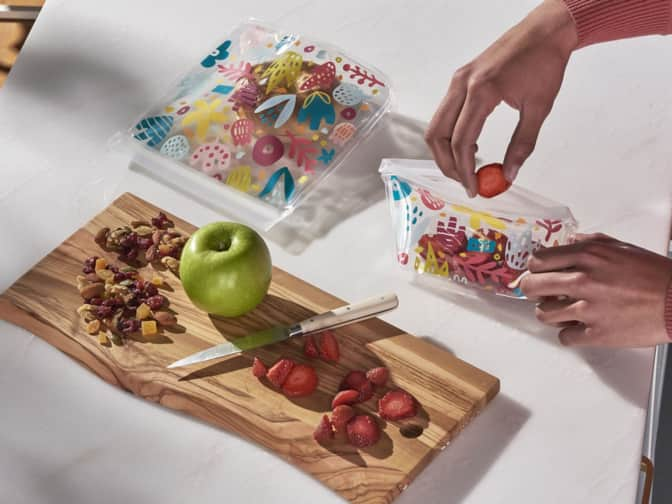
While preparing your DIY snacks and meals, turn to reusable sandwiches and snack bags of all sizes! Grove offers see-through stand-up bags so you know what you have, as well as bags with personality, with printed designs, all coming in various sizes.
These bags can be added seamlessly into your camping preparation, to store whatever you need for the picnic, hiking breaks, or campfire cooking.
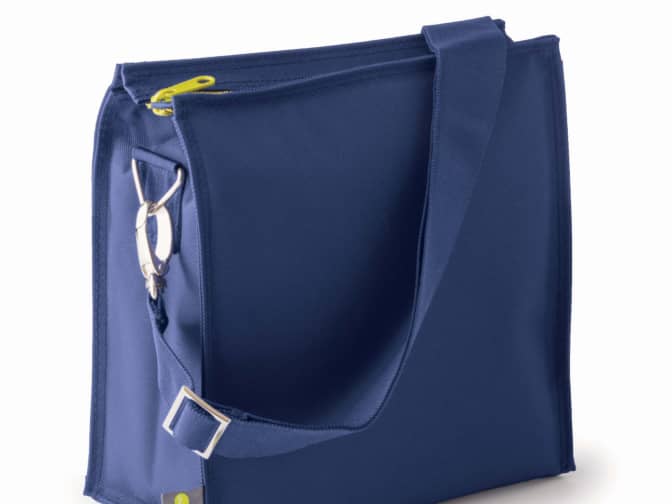
Not just for camping, these lunch totes are a perfect size and help you to avoid single-use packaging.
Have more than lunch to bring along? Fit all your sustainable camping products in this 100% Organic Cotton Tote. Ashley M. says “I received this tote as a free gift from Grove and love it! It's been my snack bag for baseball games and pool days, my travel tote for magazines and books. It's sturdy and cute! My sister has tried stealing it on multiple occasions!”
Reusable water bottles are also a simple yet essential part of sustainable living. Instead of contributing to the over-use of single-use plastic, choose a water bottle you love and can use over and over again! The Kleen Kanteen Stainless Steel Water Bottle is made of plastic-free packaging and fits into backpacks for hiking and cup holders for road trips!
Ready to head out? Allow for an easy and eco-friendly clean-up with sustainable and biodegradable products.
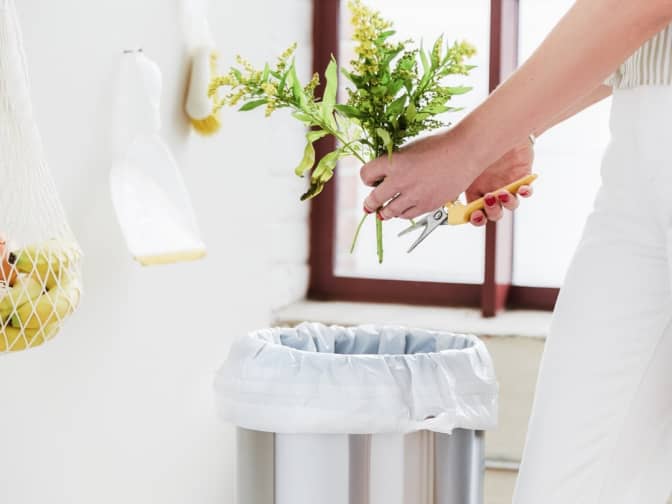
Don’t forget to pack your 100% Recycled Plastic Trash Bags! You’ll want to include at least two, one for garbage and one for recycling. These bags are made of recycled plastic and help you to avoid leaving any unnatural trash in a natural space.
Bring a compostable bag for food scraps too to be extra green and earth-friendly (plus it will keep the animals away if you clean up your food properly).

For dirty surfaces or camping gear, opt for sustainable cleaning options.
Depending on the mess, you can choose from Tree-Free 2-Ply Paper Towels in various sizes or Microfiber Cleaning Cloths for versatility between dust, dirt, and liquids.
Shelia G. wrote about Grove Co.’s Microfiber Cloths “I fell in love with microfiber cloths years ago. These are at least twice as thick as any I have ever seen! They keep their shape and color wash after wash. The best you will find!! Grove, please don't ever stop selling these.”
Don’t forget to bring cleaning wipes that will break down with these Tree-Free Compostable Kitchen Wipes to clean any surfaces, hands, or other high-touch areas and then throw them in the compost bag when done.
Some bonus tips for doing your part for the environment include:
To avoid new product manufacturing and waste, consider borrowing or renting equipment from friends. Things like tents, sleeping bags, fire pits, backpacks, and other camping gear are typically durable enough to get some extra love.
This is also a great idea for those who aren’t sure which gear to buy, what brand they like, or if camping is a once-per-year thing.
Overall, if you’re using the product a lot (camera, torch, etc) opt for rechargeable to avoid consistent purchasing and disposing of the single-use batteries.
Or try to find solar-powered tools and keep them out in the sun all day so they last all night.
Since you’re taking things with you instead of depending on nearby stores and restaurants for food, there are various positives to pre-prepared organic food.
While you pack your snacks in reusable containers and bags, consider organic food to avoid the environmental impact of chemicals, preservatives, and more. Try drying organic fruits and veggies to save space when packing, and then rehydrating them out on the trail with water.
Year-round outdoor lovers will notice a significant increase in litter and unsustainable camping practices throughout the warmer months. Sustainability is realistic for all outdoor activities, whether it be birthday parties, a BBQ, or camping.
We welcome you to slowly change your camping gear and products and share these simple swaps with your fellow outdoor lovers. Together we can choose low-waste and eco-friendly alternatives to leave less of an impact on nature.

Wondering who Grove is, what types of products we offer, and how to get a free gift set when you sign up? Learn more about flexible monthly shipments, customizing your shipment, and joining millions of happy households — no monthly fees or commitments required.

We've pulled the top 9 bug repellents as determined by Grove members. Have a look!
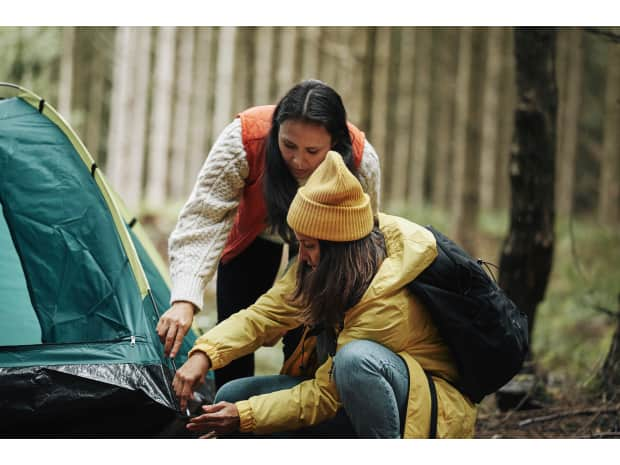
Read on to find out how to easily clean your tent and other camping gear with natural products so you can explore the planet sustainably.
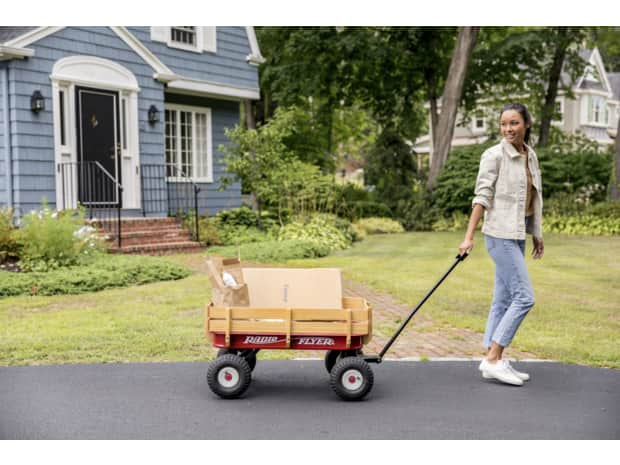
With these reusable equivalents, you can kiss those single-use trash monsters goodbye.
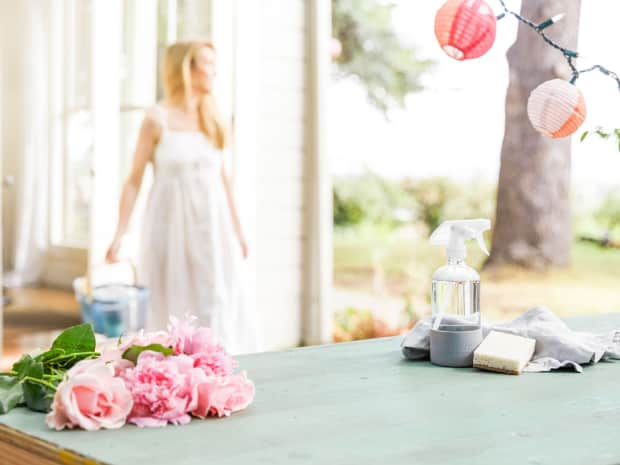
We've gathered the top-rated natural and plastic-free products, reviewed by Grove members.